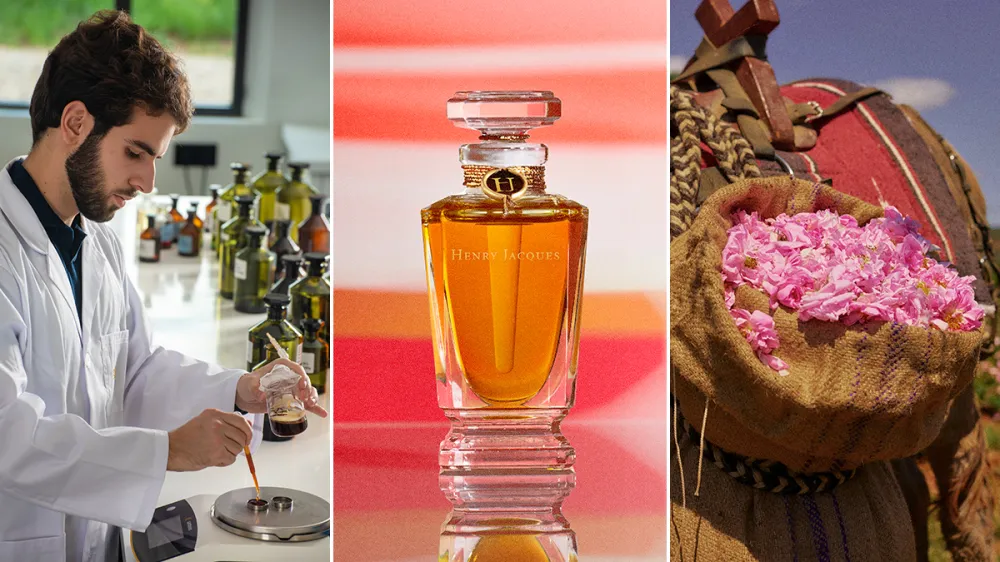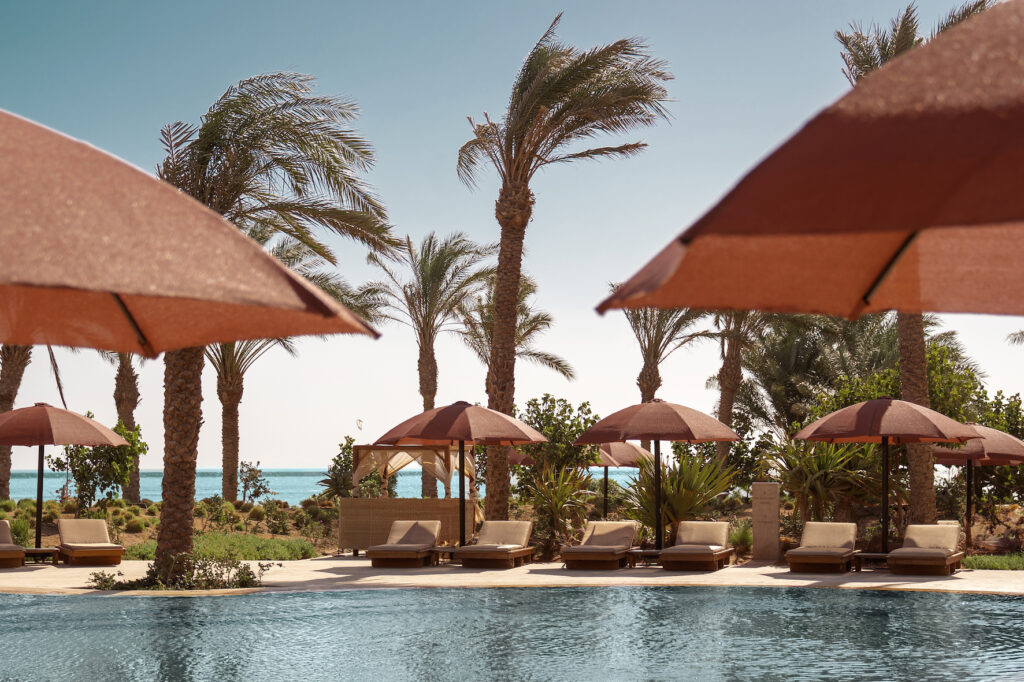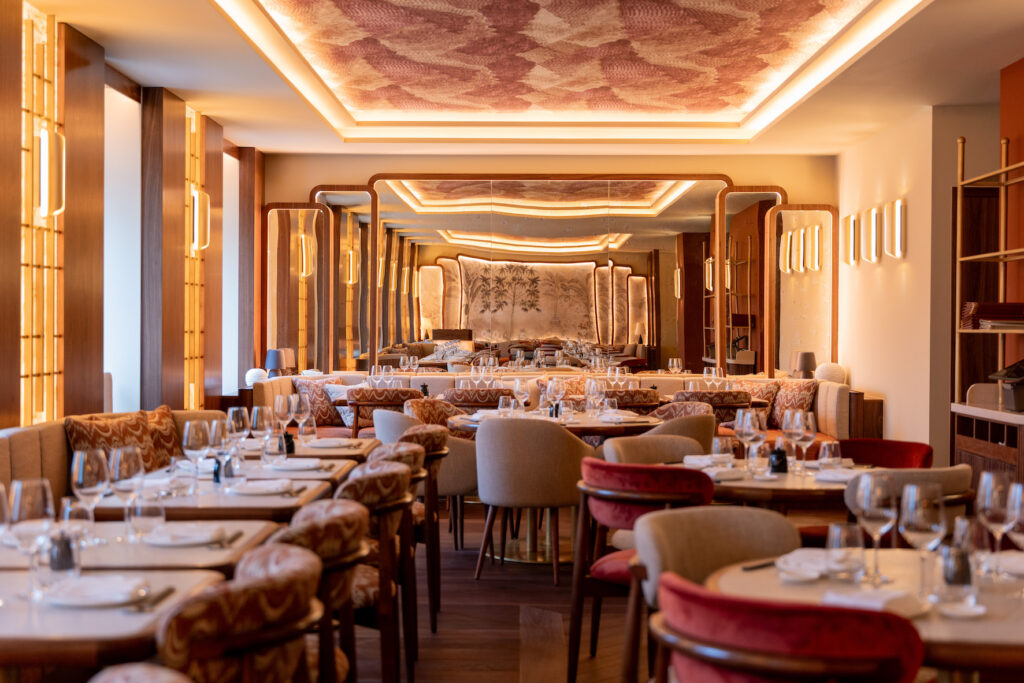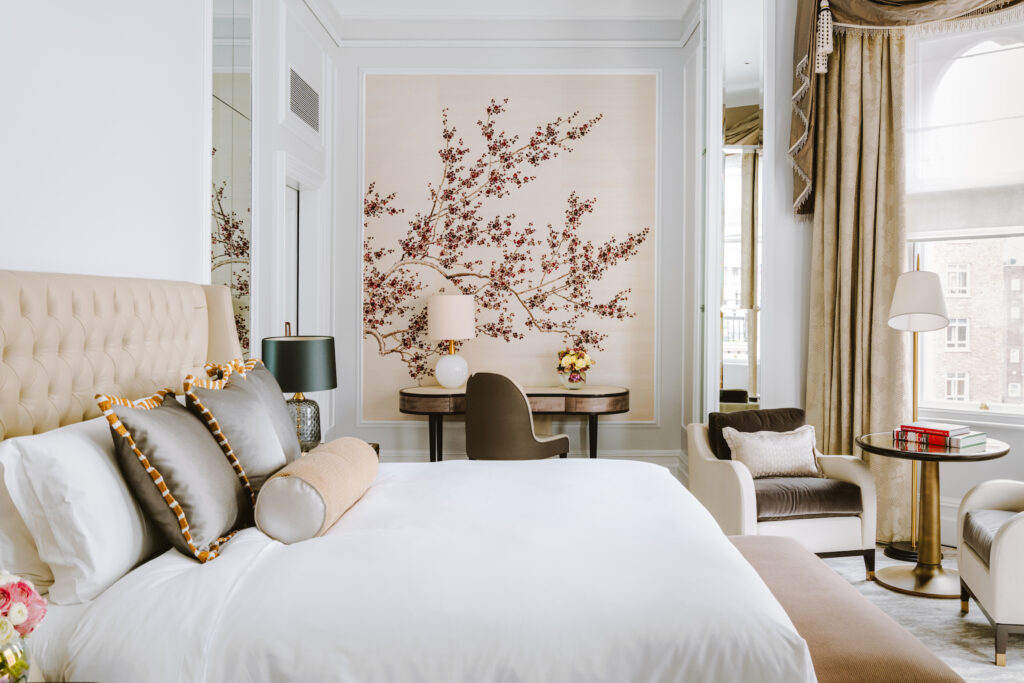At Henry Jacques, some scents are so special they’ll only be produced once.
In a laboratory set amid fields of roses, perfumer Antonin Khalifé is unpacking a chunk of ambergris. The substance, which forms in the bile ducts of sperm whales, has been used in fragrances for over a millennium and is prized for the musky, woody smell it creates as it dries. It’s part of the reason that hunting whales has been illegal since 1986; by then, they’d been hunted to the point of endangering the species.
Now, most perfumers use an inexpensive synthetic version to capture its unique scent—but for Khalifé, only the real thing will do. So fishermen in the Maldives and elsewhere search for pieces of the ingredient that have washed ashore—the only way to source it humanely. When they find them, their first call is usually Henry Jacques, the French fragrance house Khalifé’s grandfather founded in the late 1970s.
“When they deliver it to us, they deliver it like gold—in a bulletproof car,” he says.
With that, he unfurls the two-pound mound of crystallized gall and hands it over, perhaps a little casually for something that costs over $100,000.
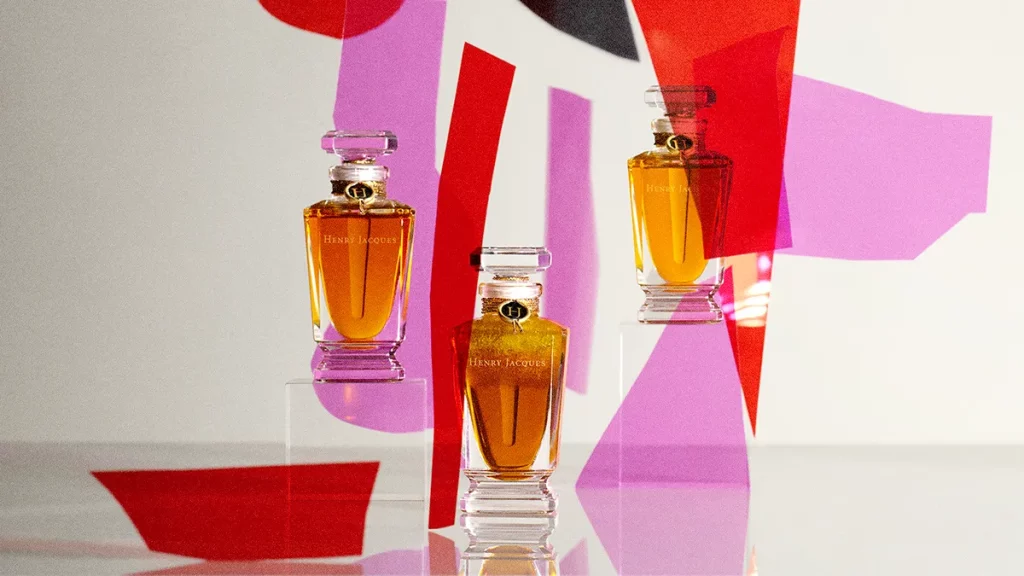
Then again, it’s only one of over 1,200 natural ingredients in this maison’s toolkit, all of them sourced with the care that a chef at a Michelin-starred restaurant would apply to finding just the right vegetables or that a watchmaker would use in selecting components for a new movement. The lab, located among the wine-producing farmlands of La Motte, France—not far from where LVMH produces millions of gallons of Provence’s key summertime export, Whispering Angel—is filled with rare extracts and absolutes from all over the world.
None of these is more important to the brand than its roses, which is why its CEO, Anne-Lise Cremona, relocated its operations here five years ago. In partnership with local farmers, she’s growing acres of Rosa centifolia, or May rose (a cultivar this region is known for), and turning them into Henry Jacques’s own rose absolute. The first batch of the hyperconcentrated fragrance oil, made from flowers grown in 2023, was used to create three new fragrances that are available now—and they won’t be reissued after they’ve sold out.
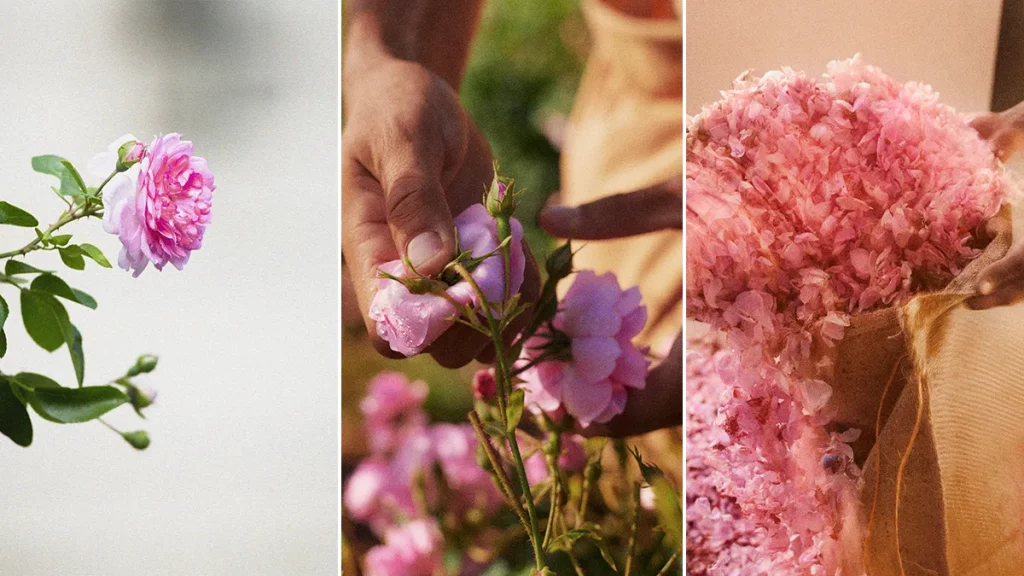
“We always had a dream to have our own roses, because, you know, we use quite a lot,” Cremona says with a smile, adding that the flower has several important roles in perfumery. “One of the powers is to enhance a fragrance with an amazing delicacy. Also, another thing that we don’t mention is that often, it’s very therapeutic.”
The Henry Jacques Rose Trio for 2023 certainly evokes a variety of emotions. Rose Soliel is complex and spicy, redolent with notes of patchouli and sandalwood. Rose Tres Rose is very rosy, almost like you’re standing in the middle of a well-tended garden. This writer’s favorite of the three is Rose Azur, perhaps because it’s the most masculine of the set; it includes zesty citrus notes and a woody backbone that makes it smell like bottled confidence. (It’s the one Antonin, the youngest of Cremona’s three children, wears himself. “Everybody stops you [to ask about it],” she says.)
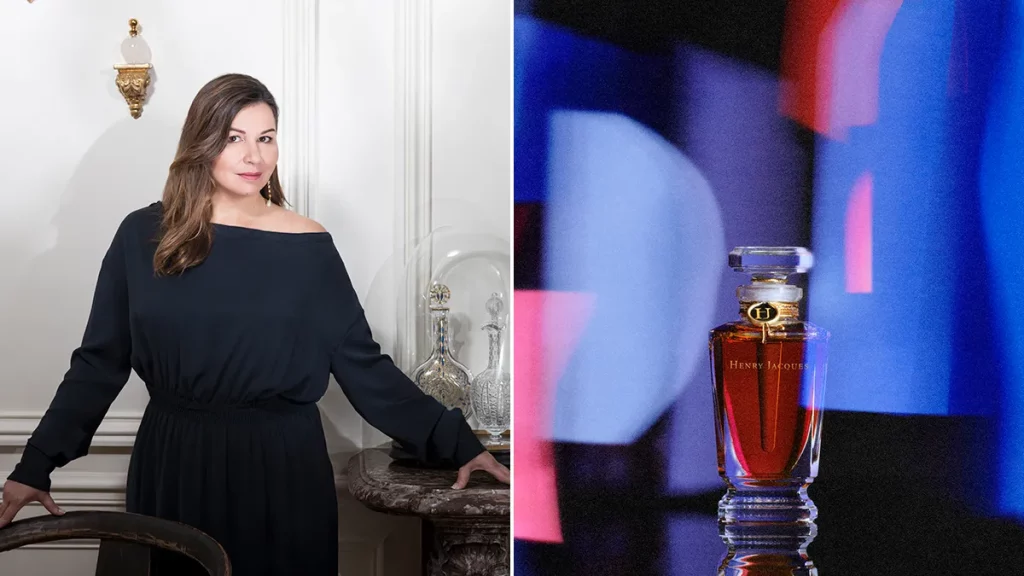
But for all its successes, the brand almost didn’t make it here. Cremona’s father, Henry Cremona, started the business in 1978. Until the early aughts, he and his wife, Yvette, operated it exclusively as a bespoke fragrance house, producing custom scents for royals and wealthy perfume enthusiasts in the know.
When her parents wanted to retire in 2010, Cremona moved back to Paris from London, where she’d been working in the fragrance industry. She didn’t want to see her family’s legacy disappear, so her challenge was to come up with a plan to bring it into the future.
She partnered with Christophe Tollemer, the architect and interior designer behind hotels such as the Airelles property at Versailles, who acts as Henry Jacques’s creative director. Together with Cremona’s older son, Sacha, the company’s head of brand strategy, they’ve repositioned the brand as a modern fragrance house with a distinct legacy. In addition to bespoke scents, the perfumer now offers a collection of 50 archival fragrances, ranging in price from $755 to $1,920, through a network of boutiques and retailers. The most important of these, arguably, is the Salon de Parfums at Harrods, which opened with an Henry Jacques shop in 2014.
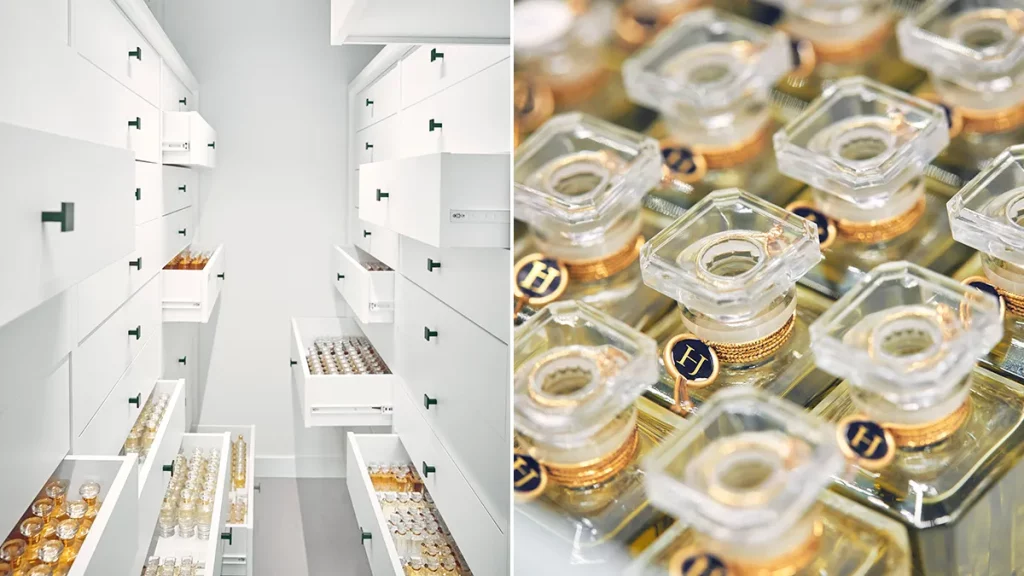
Initially, Cremona thought ready-to-spray scents would make up around 50 percent of the business. “But in fact, we’ve been so concentrated that the boutique business grew up a lot—to 90 percent,” as of last year, she says.
The expansion is no doubt helped by the brand’s creative collaborations. Henry Jacques has made two fragrances with tennis champion Rafael Nadal, both of which are a part of its In All Intimacy collection, for which famous creatives and their partners will both help craft scents. (Nadal’s wife, Maria Perello, made one fragrance for the house; word has it Nadal couldn’t choose a favorite option, so he asked to put both of his scents into production.)
The brand also offers a solid perfume option housed in a stylish container called a Clic Clac, which you can order in plain titanium or have customized with gem setting, laser engraving, and the like. They’re impressively engineered and priced accordingly: a solid rose-gold option can set you back as much as $90,000.
Still, Cremona says it’s important to her that Henry Jacques focuses on making high-quality products, not just scents for the elite. And she’s conscious of not growing the brand too quickly—so you may not see a line of Henry Jacques candles or body washes anytime soon.
“At the end, we only eat three times a day. So what’s the point of building more, more, bigger, bigger, and bigger?” she says. “So of course, the growth is important. But it has to be controlled. And that’s the idea.”

